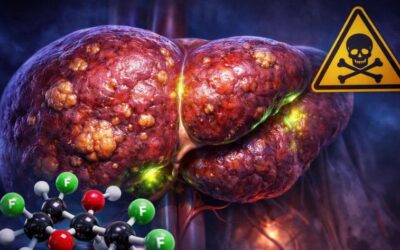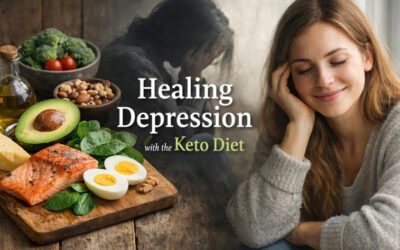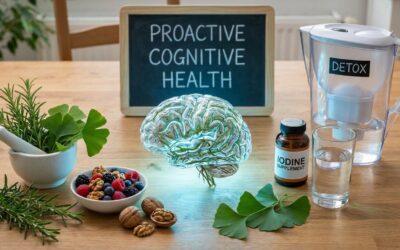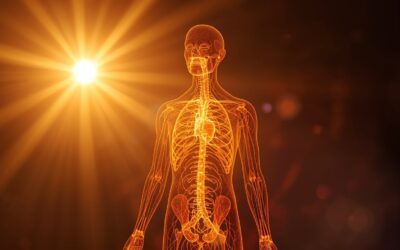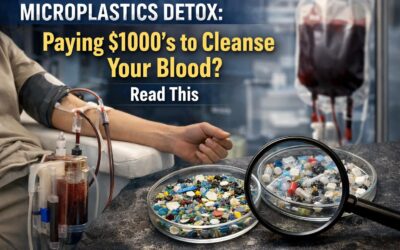We are living in a time when chronic illness, metabolic dysfunction, and low energy are rampant. While the spotlight often shines on sugar, stress, or environmental toxins, another silent culprit has taken root in our modern lives: unstable fats, particularly the polyunsaturated fats (PUFAs) found in industrial seed oils.
Understanding the roles of omega-3, 6, and 9 fatty acids—along with the complex interplay between fat quality, iodine, and cell membrane health—can unlock the door to truly foundational healing.
What Are Omega Fatty Acids?
Omega fatty acids are classified based on the position of their first double bond—a chemically reactive site in the fatty acid chain. This might sound like trivial biochemistry, but it’s not. That location of the double bond dictates how the fat behaves in the body—how easily it oxidizes, how it’s incorporated into membranes, and how it affects inflammation and metabolism.
Omega fatty acids fall into three primary categories:
Omega-3 Fatty Acids
This category includes EPA (eicosapentaenoic acid) and DHA (docosahexaenoic acid)—long-chain omega-3s found primarily in cold-water fatty fish like salmon, sardines, and anchovies. Omega-3s are potent anti-inflammatory agents and are essential for:
- Brain development and cognitive function
- Mood regulation and emotional balance
- Cardiovascular health and blood pressure control
- Immune modulation
- Reducing triglycerides and arterial plaque
- Supporting a healthy pregnancy and fetal development
DHA, in particular, is a major structural component of the brain and retina. Without adequate omega-3s, the brain cannot function optimally.
Omega-6 Fatty Acids
Omega-6 fats include linoleic acid (LA) and arachidonic acid (AA). In small amounts, omega-6s are essential for growth, repair, and immune response. However, in the modern diet, dominated by refined seed oils (like soybean, canola, corn, safflower, and sunflower oils), our intake of omega-6s has become dangerously disproportionate to omega-3s.
This imbalance drives chronic inflammation, oxidative stress, and is strongly linked to nearly every major chronic disease, including:
- Heart disease
- Obesity
- Autoimmune conditions
- Depression
- Neurodegeneration
- Cancer
Omega-9 Fatty Acids
Omega-9s, such as oleic acid, are monounsaturated fats found in olive oil, avocados, and some nuts. While not essential (our bodies can synthesize them), omega-9s are incredibly beneficial for heart health, blood sugar control, and reducing systemic inflammation. They are more chemically stable due to fewer double bonds and are less prone to oxidation, making them a better option for cooking compared to polyunsaturated seed oils.
The Problem with Polyunsaturated Fats
Polyunsaturated fats (PUFAs), including omega-3 and omega-6 fatty acids, contain multiple double bonds in their carbon chains. These double bonds are inherently unstable—they are vulnerable to oxidative damage when exposed to heat, light, and oxygen. This makes them fragile, reactive, and susceptible to forming harmful free radicals, especially when heated during cooking or processed for long shelf life.
The rise of industrial seed oils—canola, soybean, corn, sunflower, safflower, and cottonseed—has flooded our food supply with omega-6 linoleic acid. These oils are highly processed, often chemically extracted with solvents like hexane, and are used in nearly all packaged foods, restaurant fryers, and condiments.
Historically, humans consumed omega-6 to omega-3 fatty acids in a balanced ratio of around 1:1 or 2:1. Today, that ratio is closer to 20:1 or even 30:1 in favor of omega-6s, due largely to seed oils. This imbalance drives inflammation, impairs mitochondrial function, disrupts hormone signaling, and interferes with the cell’s ability to metabolize energy effectively.
The Danger of Unstable Fats and the Modern Diet
Polyunsaturated fats (PUFAs)—especially when they come from processed seed oils—are inherently unstable due to their multiple double bonds. These fats oxidize rapidly during processing, storage, and especially when heated.
Oxidized fats become lipid peroxides, which generate free radicals that damage DNA, proteins, mitochondria, and—most importantly—the cell membrane.
These toxic byproducts interfere with:
- Hormone signaling
- Mitochondrial energy production (ATP)
- Neurotransmitter balance
- Immune regulation
- Detoxification processes
Over time, oxidized fats accumulate in the body and integrate into tissues, particularly cell membranes, where they alter the function and integrity of every cell in your body.
The Cell Membrane Matters: Why Fats Are More Than Fuel
Every one of your trillions of cells is encased in a cell membrane, with a phospholipid bilayer, a dynamic double membrane composed of:
- Saturated fats
- Cholesterol
- Unsaturated fats (omega-3 and omega-6)
- Phosphatidylcholine
- Iodine-linked lipids
This membrane isn’t just a physical shell—it’s a highly intelligent interface that controls what enters and exits the cell, how the cell communicates with other cells, and how responsive it is to hormones like insulin and thyroid hormones.
When the membrane is flexible, stable, and well-nourished, cells thrive. Nutrients enter efficiently, waste is expelled, mitochondria produce energy seamlessly, and inflammation is kept in check. But when the membrane becomes rigid, inflamed, or oxidized—often due to toxic omega-6 overload—every function of the cell is compromised.
Phosphatidylcholine (PC): The Membrane Rebuilder
Phosphatidylcholine (PC) is one of the most critical building blocks of the cell membrane. This phospholipid is responsible for the structure, fluidity, and repair of the membrane. It also helps emulsify fats and bile in the liver, playing a vital role in detoxification and fat metabolism.
Modern stressors, environmental toxins, alcohol, poor diets, and even age deplete BodyBio PC (Phosphatidylcholine) levels. Without enough PC:
- Membranes become brittle and permeable
- Toxins accumulate inside the cell
- Nutrient exchange becomes inefficient
- Detoxification stalls
- Brain fog, fatigue, and inflammation increase
Replenishing PC restores the membrane’s integrity, enhances liver detoxification, and rejuvenates mitochondrial function.
Why You Need PC—Now More Than Ever
- Membrane Repair and Fluidity: PC helps restore the structure of the membrane, ensuring nutrients can get in and toxins can get out. It repairs the damage caused by oxidized seed oils and toxic build-up.
- Liver Detoxification and Fat Emulsification: PC enhances bile flow and supports phase 2 detox pathways, allowing the liver to process and eliminate toxins, including inflammatory Omega-6 seed oils, more effectively.
- Methylation and DNA Health: PC supports methylation, which is critical for gene regulation, detox, and neurotransmitter synthesis.
- Neurological Function: PC provides choline, a precursor to acetylcholine, the neurotransmitter responsible for memory, focus, and mood regulation.
- Mitochondrial Support: Healthy membranes allow mitochondria to maintain the right gradients and energy flow, ensuring efficient ATP production.
In short, without adequate PC, the inflammatory Omega-6 seed oils wreak havoc, your detox pathways stall, your brain slows, your hormones misfire, and your cellular communication breaks down.
Acceleradine® Iodine: The Unsung Defender of Cell Membranes
While Acceleradine® Iodine is most known for its essential role in thyroid hormone production (T3 and T4), its function goes far deeper. Acceleradine® Iodine is a powerful antioxidant and membrane stabilizer, especially when it comes to protecting unsaturated fats in the cell membrane and mitigating the side effects of inflammatory Omega-6s.
Acceleradine® Iodine Neutralizes Unstable Fats
Acceleradine® Iodine binds to the vulnerable double bonds in unsaturated fats to create iodolipids, which protect the fats from oxidizing. This is especially critical in the omega-6-rich membranes of people consuming modern diets laden with seed oils. Acceleradine® Iodine helps restore the structural integrity of the membrane by preventing peroxidation and stabilizing fatty acids.
Here’s how iodine supports membrane, omega balance, and overall cellular health:
- Binds to unstable omega-6 fats, forming iodolipids that prevent oxidation
- Displaces toxic halogens like bromide, fluoride, and chlorine from cells
- Enhances apoptosis, helping clear damaged or cancerous cells
- Boosts mitochondrial ATP production, restoring cellular energy
- Protects DNA from oxidative stress
In a world where most people are iodine-deficient and overexposed to unstable seed oils, radiation, and toxic halogens, the need for bioavailable iodine, like Acceleradine® Iodine, is greater than ever.
The Perfect Partnership: Iodine + Phosphatidylcholine
In a toxin-laden environment, iodine and phosphatidylcholine are a synergistic duo. Together, they
- Rebuild and stabilize cell membranes
- Stabilize the unstable omega-fat ratio
- Support deep cellular detoxification
- Enhance mitochondrial function and ATP production
- Normalize hormone signaling
- Improve nutrient uptake and toxin elimination
- Defend against oxidative stress and lipid peroxidation
- Fortify the brain, liver, thyroid, and gut
Without iodine, membranes stay vulnerable to oxidation. Without BodyBio PC (Phosphatidylcholine), they cannot be structurally repaired or maintained. You need both.
Putting It All Together: A Nutritional Blueprint for Cellular Health
To balance out your omega fats and protect and nourish your cell membranes—and therefore your metabolic, hormonal, and neurological health—consider the following:
Focus On:
- Wild-caught fatty fish (EPA/DHA)
- Grass-fed meats and pastured eggs
- Extra virgin olive oil and avocado oil (unheated)
- Organic coconut oil and grass-fed butter or ghee
- Cold-pressed oils are stored in dark glass bottles
- Supplementation with high-quality BodyBio PC (Phosphatidylcholine) (especially for liver and brain health)
- Adequate iodine intake, particularly in the bioavailable, monatomic form such as Acceleradine® Iodine
Avoid:
- Industrial seed oils (canola, soybean, corn, sunflower, cottonseed)
- Fried foods and processed snacks
- High-heat cooking with unstable fats
- Repeatedly reused cooking oils in restaurants
Final Thoughts
We’ve been told for decades that fat is the enemy. But in reality, it’s the wrong kind of fat—and the lack of essential cofactors like iodine and phosphatidylcholine—that’s undermining our health.
Your cell membranes are the gatekeepers to your body’s vitality. When built from unstable, oxidized oils and unsupported by protective nutrients like iodine, they become the weak link in your metabolic chain. But with the right dietary choices and supplemental support, you can restore cellular integrity, calm chronic inflammation, and reclaim vibrant health from the inside out.
This is not just a shift in nutrition—it’s a shift in biological resilience. And it begins at the membrane.
Sara Banta
Sara Banta is a Stanford University Graduate with a Degree in Economics and Psychology, and a certified Natural Supplement Expert & Graduate of the Institute for Integrative Nutrition. Sara is the Founder of Accelerated Health Products and host of the health & wellness podcast, Accelerated Health Radio.
- Sara Banta
- Sara Banta
- Sara Banta
- Sara Banta
- Sara Banta
- Sara Banta
- Sara Banta
- Sara Banta
- Sara Banta
- Sara Banta
- Sara Banta
- Sara Banta
- Sara Banta
- Sara Banta
- Sara Banta
- Sara Banta
- Sara Banta
- Sara Banta
- Sara Banta
- Sara Banta
- Sara Banta
- Sara Banta
- Sara Banta
- Sara Banta
- Sara Banta
- Sara Banta
- Sara Banta
- Sara Banta
- Sara Banta
- Sara Banta
- Sara Banta
- Sara Banta
- Sara Banta
- Sara Banta
- Sara Banta
- Sara Banta
- Sara Banta
- Sara Banta
- Sara Banta
- Sara Banta
- Sara Banta
- Sara Banta
- Sara Banta
- Sara Banta
- Sara Banta
- Sara Banta
- Sara Banta
- Sara Banta
- Sara Banta
- Sara Banta
- Sara Banta
- Sara Banta
- Sara Banta
- Sara Banta
- Sara Banta
- Sara Banta
- Sara Banta
- Sara Banta
- Sara Banta
- Sara Banta
- Sara Banta
- Sara Banta
- Sara Banta
- Sara Banta
- Sara Banta
- Sara Banta
- Sara Banta
- Sara Banta
- Sara Banta
- Sara Banta
- Sara Banta
- Sara Banta
- Sara Banta
- Sara Banta
- Sara Banta
- Sara Banta
- Sara Banta
- Sara Banta
- Sara Banta
- Sara Banta
- Sara Banta
- Sara Banta
- Sara Banta
- Sara Banta
- Sara Banta
- Sara Banta
- Sara Banta
- Sara Banta
- Sara Banta
- Sara Banta
- Sara Banta
- Sara Banta
- Sara Banta
- Sara Banta
- Sara Banta
- Sara Banta
- Sara Banta
- Sara Banta
- Sara Banta
- Sara Banta
- Sara Banta
- Sara Banta
- Sara Banta
- Sara Banta
- Sara Banta
- Sara Banta
- Sara Banta
- Sara Banta
- Sara Banta
- Sara Banta
- Sara Banta
- Sara Banta
- Sara Banta
- Sara Banta
- Sara Banta
- Sara Banta
- Sara Banta
- Sara Banta
- Sara Banta
- Sara Banta
- Sara Banta
- Sara Banta
- Sara Banta
- Sara Banta
- Sara Banta
- Sara Banta
- Sara Banta
- Sara Banta
- Sara Banta
- Sara Banta
- Sara Banta
- Sara Banta
- Sara Banta
- Sara Banta
- Sara Banta
- Sara Banta
- Sara Banta
- Sara Banta
- Sara Banta
- Sara Banta
- Sara Banta
- Sara Banta
- Sara Banta
- Sara Banta
- Sara Banta
- Sara Banta
- Sara Banta
- Sara Banta
- Sara Banta
- Sara Banta
- Sara Banta
- Sara Banta
- Sara Banta
- Sara Banta
- Sara Banta
- Sara Banta
- Sara Banta
- Sara Banta
- Sara Banta
- Sara Banta
- Sara Banta
- Sara Banta
- Sara Banta
- Sara Banta
- Sara Banta
- Sara Banta
- Sara Banta
- Sara Banta
- Sara Banta
- Sara Banta
- Sara Banta
- Sara Banta
- Sara Banta
- Sara Banta
- Sara Banta
- Sara Banta
- Sara Banta
- Sara Banta
- Sara Banta
- Sara Banta
- Sara Banta
- Sara Banta
- Sara Banta
- Sara Banta
- Sara Banta
- Sara Banta
- Sara Banta
- Sara Banta
- Sara Banta
- Sara Banta
- Sara Banta
- Sara Banta
- Sara Banta
- Sara Banta
- Sara Banta
- Sara Banta
- Sara Banta
- Sara Banta
- Sara Banta
- Sara Banta
- Sara Banta
- Sara Banta
- Sara Banta
- Sara Banta
- Sara Banta
- Sara Banta
- Sara Banta
- Sara Banta
- Sara Banta
- Sara Banta
- Sara Banta
- Sara Banta
- Sara Banta
- Sara Banta
- Sara Banta
- Sara Banta
- Sara Banta
- Sara Banta





